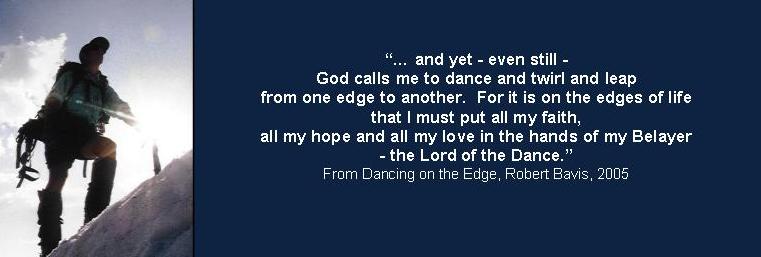As I conclude my 6th and final class at UMass, I've been asked to share my thoughts about my experiences as a participant in the learning communities that were temporarily created (to varying degrees) during each class. I must be honest in saying that I have found that I have not always practiced what I preach (i.e. what I say I "value" but did not always model). I have come to believe that though there may be value for an instructor to try and facilitate the development of a learning "community" amongst their distance learners, the intrinsic nature of distance learning makes it difficult at best - both for instructor and student alike.
The tacit requirement for the development of any community is "buy-in". Individuals must WANT to be a participant. Though a community always has participants with varying degrees of buy-in, there must be some recognizable evidence of their commitment to that community to actually BE in community. Otherwise, those with little commitment remain in the "doorway" (i.e. maybe not sure of or have a fear of what might be expected of them if they were to enter)
In my distance learning experience, I can think of only a couple of instructors who did more than just assign a group project in hope there would be more than a token opportunity given for students to co-create a semester-limited learning community.
It was in only one class that I felt more than a touch of community, though it came only within a small group (of 3) assigned a challenging project. I think that the extra challenge (difficulty) of the project and the logistics required for my group mates to accomplish the academic goal, provided a strong "invitation" for commitment to one another. Thankfully, each of us brought different and complimentary skills and experiences to the project. Our strengths and limitations were well-balanced - we needed each other!
It was this mutual need that over rode any desire to step away. Though we were only 3, we were a fully functional community. We flexed with varying time/job related hurdles. Some carried more of the load than others (at times) but there was no resentment on that matter. We managed to "put our heads together" by maximizing our use of all the technology available to us. In the end, we were proud of the product and process that resulted!
In hindsight, it would have been great if the concept of and the instructor-facilitated modelling of community building would have been discussed and facilitated in the prerequisite class for this certificate program!
Despite the many challenges of actually creating/facilitating the development of a "true" (whatever that might mean!) or at least an "aspiring" learning community, I have experienced a sufficient-enough, lived example of the potential for facilitating opportunities.
An invitation to participate, an instructor's shared valuing of and the creative structuring of class assignments and requirements, are a "good start" for a new instructor.
In my MANY years of face-to-face facilitation of adventure-based community-building, I know full well the value and effectiveness of providing difficult "challenges" as the catalyst for promoting and sustaining community. In an adventure setting, participants need each other. The challenge for the online instructor is to provide sufficient challenges for their distance learners so as to more easily facilitate a co-created, co-facilitated, co-sustaining learning community - even if just for a short time!
Subscribe to:
Post Comments (Atom)


2 comments:
Bob,
Thanks for this candid appraisal of your experience of online learning at Umass. A few points you made really struck me. First, the way that challenge can facilitate bonding--an experience I'm sure you've facilitated countless times in your adventure based teaching. I guess a good challenge for online instructors is to create challenging assignments/activities that encourage commitment--you can't guarantee it of course--but are not so intimidating that they scare people off. Another point you raise is personal commitment to the group or "buy-in". Again, absolutely essential for community building, but tricky ground for instructors. Also, I think your idea of introducing the concept of learning community as part of the orientation to the online program is a really good one--I think it would help set expectations for students, encourage instructors to attend to this dimension more carefully, and maybe lead to greater and more consistent buy-in over the course of the program. Thanks for sharing your thoughts.
Post a Comment